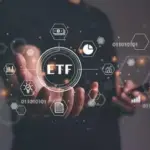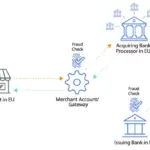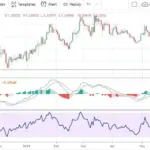The real estate industry, traditionally known for its high entry barriers and limited liquidity, is undergoing a digital revolution through tokenization. This innovative process — converting property ownership into blockchain-based digital tokens — is reshaping how investors buy, sell, and manage real estate assets across the globe.
What Is Real Estate Tokenization?
Tokenization refers to the process of dividing a physical asset, such as a building or land, into digital tokens on a blockchain. Each token represents a fraction of ownership in the property. These tokens can be traded on specialized platforms, similar to how shares are exchanged in the stock market.
For example, instead of needing millions to buy an apartment complex, an investor could purchase tokens worth as little as a few hundred dollars, gaining partial ownership and earning returns from rental income or appreciation.
Breaking Down Barriers to Entry
Historically, real estate investment has been reserved for institutional players and wealthy individuals due to high capital requirements and complex legal processes. Tokenization changes this dynamic by allowing fractional ownership, making property investment more inclusive.
Retail investors can now diversify their portfolios by owning small portions of properties in different cities or countries — something previously possible only through large funds or trusts.
Enhanced Liquidity and Transparency
One of the biggest challenges in traditional real estate is illiquidity. Selling property often takes months, involving multiple intermediaries and hefty transaction costs. With tokenization, digital tokens can be traded on secondary markets almost instantly, giving investors the ability to exit positions when needed.
Moreover, blockchain technology ensures transparency and security. Every transaction is recorded on a public ledger, reducing the risk of fraud and improving trust between parties.
Global Access to Property Markets
Tokenization also breaks geographical barriers. Investors from any part of the world can now gain exposure to real estate markets in prime locations such as London, New York, or Singapore — all without dealing with complicated cross-border procedures. This globalization of property ownership is attracting a new wave of investors looking for stable, tangible assets.
Challenges and Regulatory Hurdles
Despite its promise, tokenized real estate still faces challenges. Regulatory frameworks differ across jurisdictions, and questions around legal recognition, taxation, and investor protection remain unresolved in many countries. Additionally, valuation, governance, and property management processes must be adapted to fit blockchain-based models.
There’s also the issue of market adoption — while the technology exists, widespread investor confidence and institutional support are still developing.
The Future of Tokenized Real Estate
As regulations evolve and blockchain adoption grows, tokenization is expected to become a mainstream tool for real estate investment. It has the potential to unlock trillions of dollars in global property value, creating a more efficient, transparent, and accessible market for all.
We may soon see real estate tokens traded alongside stocks and bonds, with investors seamlessly managing diversified portfolios of both digital and physical assets.
Conclusion
Tokenization is redefining real estate investment by lowering entry barriers, improving liquidity, and increasing transparency. While the road ahead includes regulatory and technical challenges, the potential benefits are undeniable. As blockchain continues to mature, tokenized real estate could mark the beginning of a new era — one where property ownership is digital, democratized, and borderless.














